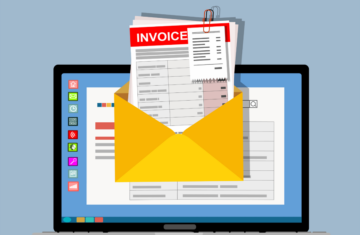It started like many small business stories do – handwritten notes, a shoebox of receipts, and a “we trust her” vibe.
A Bookkeeper was brought in to clean up the books. What looked like a simple catch-up job revealed deeper issues: duplicate supplier payments, irregular reimbursements, and questionable cash withdrawals. The admin assistant, it turned out, had unrestricted access – approving, paying, and reconciling transactions without oversight.
The business owner’s defence?
“We trusted her.”
But trust isn’t an internal control.
What are internal controls?
Internal controls are the policies and processes a business puts in place to prevent fraud, detect errors, and protect its financial data. For Bookkeepers, internal controls are vital. They help ensure accurate reporting, safeguard cash flow, and reduce risk.
Whether you’re working with a sole trader or a mid-sized business, internal controls are essential. They protect both the Bookkeeper and the business.
Why internal controls matter for Bookkeepers
Bookkeepers are often the first line of defence against financial mismanagement. You’re in the books daily – you see the patterns, the red flags, and the gaps in process.
Good internal controls help:
- Reduce the risk of fraud and error
- Ensure accurate financial reporting
- Build trust with clients, lenders, and auditors
- Support compliance with tax and legal obligations
If you’re not already recommending internal controls to your clients, now’s the time to start.
Practical controls every Bookkeeper should implement
Here are some common internal controls Bookkeepers can recommend and help implement:
Bank Account Verification
Always verify supplier bank details before payment – especially for new suppliers or when details change. Use two-step verification where possible.
Segregation of Duties
Separate tasks wherever possible:
- One person enters the invoice
- Another approves the payment
- A third reconciles the bank feed
Even in small businesses, digital tools can help separate these duties.
Reimbursement and Petty Cash Policies
Set clear policies for staff reimbursements. Use templates, collect receipts, and require managerial approval.
User Access Control
Review user access in accounting software every few months. Remove former staff and limit permissions to only what’s necessary.
Audit Trail Activation
Ensure the audit trail or history feature is enabled in your accounting software. It helps track who did what, and when.
Invoice Number Monitoring
Watch for missing or duplicate invoice numbers. These could be signs of errors – or fraud.
Monthly Bank Reconciliations
Ensure reconciliations happen at least monthly, preferably by someone other than the person making payments.
These are practical, affordable internal controls that make a big difference – and many are already built into the systems Bookkeepers use every day.
No longer optional
Where digital scams are rising and compliance expectations are tightening, internal controls are non-negotiable.
They’re especially important for:
- Businesses applying for finance
- Those preparing for sale
- Clients going through due diligence or Inland Revenue audits
- Businesses subject to AML regulations
Helping clients set up and maintain internal controls is one of the most valuable services a Bookkeeper can provide.
Need help?
At NZQBA, we support Bookkeepers with the tools and training to confidently guide clients on internal controls. From checklists to sample policies, we’ve got you covered.
You don’t need to be an expert in risk – you just need to be a proactive Bookkeeper who knows that prevention is better than cure.
Internal controls protect your clients, your reputation, and your peace of mind. Let’s make them standard practice for every Bookkeeper in New Zealand.
Join a professional network that helps you build smart internal controls – not just trust. Whether you’re contracting, running your own business, or working in-house, NZQBA gives you access to practical resources, real-world strategies, and shared experiences to help you protect your clients, reduce risk, and strengthen your role as a trusted Bookkeeper.




